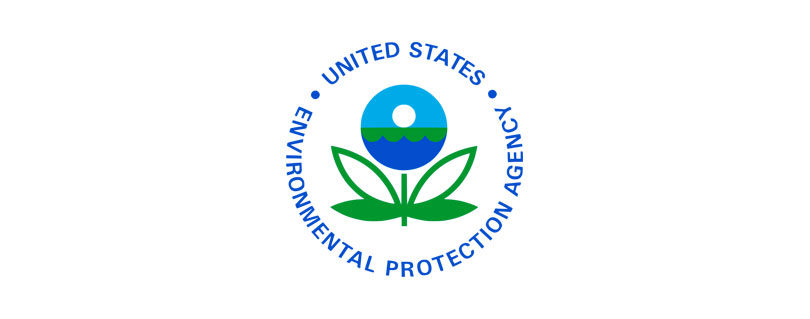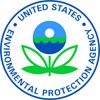Biden-Harris Administration announces nearly $11M in grants for wildfire smoke preparedness in community buildings
Publilshed by the U.S. Environmental Protection Agency (EPA)
WASHINGTON – The U.S. Environmental Protection Agency on Tuesday announced the selection of nine grant applicants to receive an expected $10.67 million in funding to enhance wildfire smoke preparedness and protection in communities throughout the West.
“After the wildfires in Maui, the wildfire smoke that blanketed the East Coast last summer, and the many devastating wildfires in the West, we are all aware of the very real health impacts of smoke as well as the critical importance of smoke preparedness,” said EPA Deputy Administrator Janet McCabe. “EPA is providing more than $10 million in grant funding that will help provide important public health protections in communities across our country, especially in those communities who have been overburdened by smoke pollution for far too long.”
“As climate chaos intensifies, so do extreme wildfires and hazardous smoke events — events that endanger public health and impact everyday life for those under the plumes of dark smoke,” said Senator Jeff Merkley, Chair of the Interior Appropriations Subcommittee. “I created this program to help ensure communities in Oregon and across the West have access to the resources they need to protect themselves from the dangerous smoke and heat that has unfortunately become expected with our increasingly hot summer months.”
“I’m excited to see the U.S. Environmental Protection Agency taking critical steps to bolster wildfire smoke preparedness and protection in communities throughout the West,” said Congressman Joe Neguse, Co-Chair of the Bipartisan Wildfire Caucus. “Like all Coloradans, I’ve seen firsthand the real and growing threats associated with wildfires. This nearly $11 million investment in wildfire smoke preparedness will help states and local organizations, including the Colorado Department of Public Health and Environment (CDPHE), implement best practices to prepare for and respond to the threat of wildfire smoke.”1
Wildfire smoke is a significant public health problem. Smoke plumes can have impacts over a large portion of the U.S. population, with health impacts ranging from eye and throat irritation to asthma attacks, heart problems, emergency room visits, hospitalizations, and even premature death. Local officials often advise people to stay indoors during a smoke event. Some of the smoke from outdoors, however, can enter homes and buildings and make it unhealthy to breathe indoor air, too. Buildings are varied and do not all provide the same level of protection against wildfire smoke.
The Wildfire Smoke Preparedness in Community Buildings grant program is a new federal program to enhance community wildfire smoke preparedness by providing grants to states, federally recognized Tribes, public preschools, local educational agencies, and non-profit organizations. Projects are designed to assess, prevent, control, or abate wildfire smoke hazards in community buildings that serve the public, and that serve disadvantaged communities or vulnerable populations. EPA anticipates award of nine grants, ranging from approximately $350,000 to $2 million – totaling over $10 million.
The following entities have been selected for awards, which are contingent on completion of all legal and administrative requirements relating to the grant:
- Arizona Board of Regents-Arizona State University, Arizona – To engage diverse communities in Arizona to develop resilient solutions to the challenges that are posed by wildfires. The project is expected to: (1) engage community members with knowledge of indoor air pollution control and associated health fields, (2) evaluate the resilient capacity of facilities to handle the air pollution and heat impacts of wildfires, and (3) implement sustainable solutions in facilities to enhance resiliency towards the air quality and heat impacts of wildfires.
- Esperanza Community Housing Corporation, California – To protect the people of South Los Angeles from wildfire smoke by strengthening wildfire smoke preparedness infrastructure in the Mercado La Paloma building and using the site as the launch pad for a grassroots education and outreach campaign.
- Colorado Department of Public Health and Environment, Colorado – To design and implement a statewide program to provide outreach, education, and training for local community partners on how to prepare for, and respond to, the public health threat of wildfire smoke.
- Nez Perce Tribe, Tribal land within boundaries of Idaho – To improve public health protection against smoke from wildfires by strengthening preparedness in community buildings. The project will enhance smoke readiness planning, outreach and training, deploy portable air cleaners, conduct indoor/outdoor air monitoring, complete weatherization, and upgrade HVAC systems. Three community centers, nine public libraries, and four youth centers will be upgraded to provide cleaner air spaces to the public during wildfire smoke events for effective reduction of occupants’ exposure.
- Montana Department of Public Health and Human Services, Montana – To engage a variety of partners to increase wildfire smoke awareness, create and pilot a clean air shelter recognition program in six communities for easy replication in other high need areas, create culturally appropriate and tailored messaging on wildfire smoke and air quality, and provide training to building and facility managers on HVAC maintenance and importance of good indoor air quality.
- Oregon State University, Oregon – To develop a set of interventions that includes tailored toolkits and resources that can be used by schools, preschools, and daycares to reduce wildfire smoke exposures and increase community resilience across Oregon.
- Utah Department of Environmental Quality, Utah – To enhance communities’ resilience to wildfire smoke by (1) deploying indoor/outdoor low-cost PM2.5 and CO2 sensors at public schools, (2) developing air quality alerts, and (3) distributing air cleaners and filters to public schools/preschools and residents in target underserved areas.
- Gonzaga University, Washington – For activities that will reduce indoor exposure to pollutants in wildfire smoke in the City of Spokane and in three community centers serving disadvantaged communities.
- Bellingham School District No.501, Washington – To focus on smoke readiness assessment and planning as well as indoor and outdoor air quality monitoring.
These grants are provided under Section 103(b)(3) of the Clean Air Act as supplemented by authority provided in the 2022 Consolidated Appropriations Act and the 2023 Consolidated Appropriations Act to fund abatement activities.
Learn more about the Wildfire Smoke Preparedness in Community Buildings grant program.
Learn more about wildfires and indoor air quality.
1This news release was updated to include a quote from Congressman Joe Neguse, Co-Chair of the Bipartisan Wildfire Caucus.
Read the full article at: https://www.epa.gov/newsreleases/biden-harris-administration-announces-nearly-11m-grants-wildfire-smoke-preparedness



